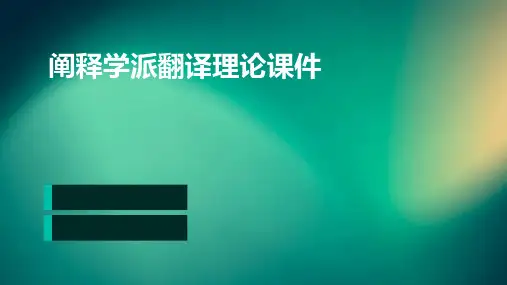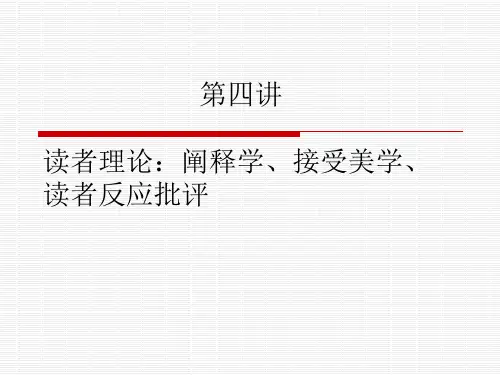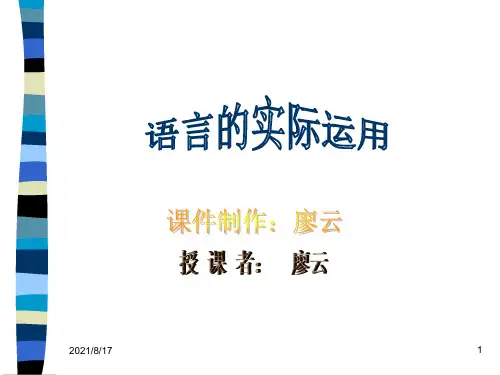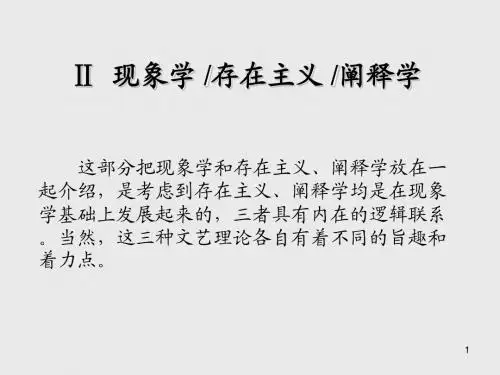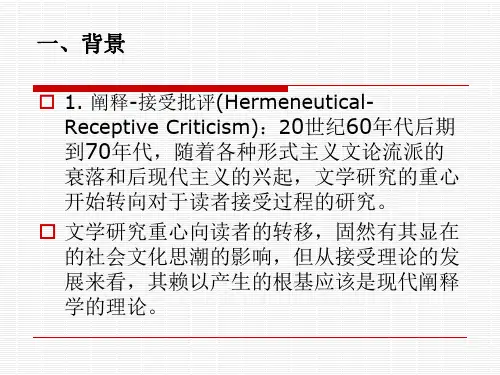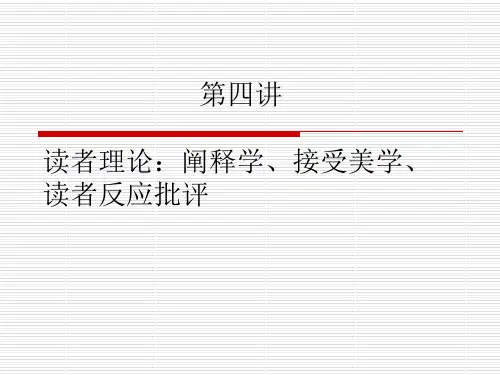1. 哲学背景: 1)胡塞尔(Edmund Husserl, 1859-1938)现象学
现象学哲学提出“回到事物本身”的口号。所谓“回到 事物本身”,并不是指回到我们经验中的客观事物本身, 相反,胡塞尔恰恰认为,经验事实是不可靠的。 回到事物自身,首先必须排除对客体的自然态度,将超 出我们直接经验的事物放进“括号”里,以便使外部世 界变成我们自身意识的内容,在纯意识中把握“纯粹现 象”,把握“意向性客体”。 而“意向性客体”是靠对于意识活动本身和对客体具体 经验事实中不变成分的双重“洞察”获得的。
五、接受美学与读者反应批评
尧斯与伊塞尔:联邦德国“康斯坦茨学派”接 受美学(“reception” theory)。 接受美学(Reception theory)20世纪60年 代在联邦德国展开对文学割裂社会历史的批评, 形成了这一理论。60年代的文学挑战了已有的 文学形式,提高了读者的介入力度。 尧斯:《文学史作为向文学的挑战》(1967) 伊塞尔:《文本的召唤结构》(1970)
故事的叙述由受述者决定: The function of the narratee: It is hard to find the narratee while reading, sometimes from minor characters, or from some unimportant “signals”. In this case, the telling of the story is somewhat decided by the narratee ( like A Thousand and One Night). 叙述活动本身生成读者:The narratives produce their own “readers”, “listeners”, who may or may not coincide with actual readers.
